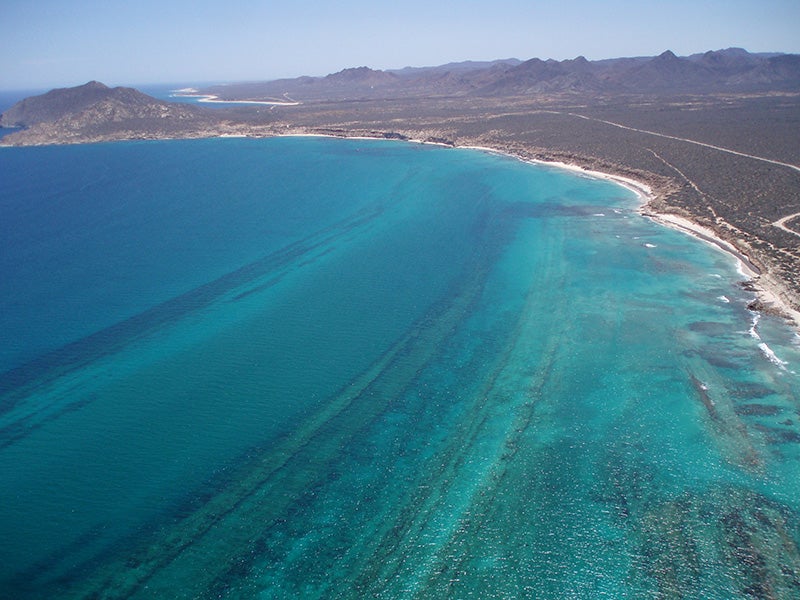Tri-National Organization To Investigate Mexico for Environmental Enforcement in Gulf of California Development
The Secretariat of the Commission for the Environmental Cooperation (CEC) recommended a thorough investigation in Mexico’s systematic failure to enforce its environmental law when authorizing the construction of three tourist resorts in an important area with vulnerable ecosystems, endangered species and local communities.
Contact
The Secretariat of the Commission for Environmental Cooperation (CEC) — an intergovernmental organization created under the North American Free Trade Agreement (NAFTA) between Canada, Mexico and the U.S. — has recommended a thorough investigation of Mexico’s systemic failure to enforce its environmental law when authorizing the construction of mega tourism resorts in an important area of the Gulf of California.
This investigation comes in response to a citizen petition submitted by the Interamerican Association for Environmental Defense (AIDA) and its partner organization Earthjustice on behalf of 11 local and international organizations. The petition uses the permitting of four mega resorts in this vulnerable region to demonstrate how environmental violations are prevalent.
The Gulf of California is a vast area—comprised of the States of Sonora, Sinaloa, Nayarit, Baja California and Southern Baja California. The area contains sensitive ecosystems such as coral reefs and coastal mangroves, and is home to endangered species (whales, manta rays, sharks and turtles, among others), migratory birds, and traditional fishing communities. The latter depend on the local tuna, sardine, shrimp and squid fisheries, which provide employment for nearly 50,000 people.
Yet, the Mexican government authorized the construction of three mega resorts in that area—Paraíso del Mar, Entre Mares, and Playa Espíritu—without complying with laws related to environmental impact assessment, endangered species protection, and coastal ecosystem conservation. With these projects, the natural environment in the Gulf of California, and the wildlife and human communities that depend on it, have been put at risk.
The CEC Secretariat based its recommendation to conduct a detailed investigation and prepare a “factual record” on the lack of appropriate environmental impact assessments for the projects. The decision does not include Cabo Cortés project, because this project’s environmental permit was recently revoked.
“Projects like Playa Espíritu, located in Marismas Nacionales [one of Mexico’s largest wetlands and a key mangrove forest], impact small local companies and the fishing sector. Fisheries are harmed when the mangroves are damaged because these wetlands are a critical nursery and reproductive site for fish,” said Carlos Simental of the Ecological Network for the Development of Escuinapa (Red Ecologista por el Desarrollo de Escuinapa – REDES), one of the petitioners.
The Gulf of California and its rich biodiversity face a serious problem. Among many examples and according to recent studies, the brown pelicans in the area are not reproducing as they used to, likely due to climatic changes and lack of food due to overfishing. Tourism development that is poorly planned and fails to comply with the laws aggravates the situation.
“We hope the Mexican government will receive feedback on how it makes decisions related to environmental impact assessments for tourism development in the region”, said Sandra Moguel, an AIDA attorney. “With the preparation of this factual record, we are seeking improvements in the environmental impact assessment process on various fronts. These include the consideration of cumulative impacts—both from separate projects and from all components that comprise any single development—as well as the use of best available information, and inclusion of effective measures for protecting endangered species and mangroves, as required by Mexican law and treaties that Mexico has ratified.”
The investigation of what has happened in the Gulf of California could yield positive outcomes such as legal reforms, dialogue to improve environmental impact assessment processes, and the design of sustainable tourism projects that involve local communities from the outset. The Council of the CEC, a panel of high-ranking environmental officials from Canada, the United States and Mexico, will decide within two months whether or not they accept the recommendation to develop a factual record.
“The Secretariat’s recommendation points to a serious concern that Mexico is failing to effectively enforce environmental laws in the Gulf of California,” said Martin Wagner, Director of the International Program of Earthjustice. “This environmental treasure is home to incredible marine biodiversity; it is a critical source of protein for the Mexican people and needs long-term protection. No mega-resort, most of which stem from foreign investment, should be exempt from complying with Mexican environmental protections.”
For more information, visit AIDA’s website.

Additional Resources
About Earthjustice
Earthjustice is the premier nonprofit environmental law organization. We wield the power of law and the strength of partnership to protect people's health, to preserve magnificent places and wildlife, to advance clean energy, and to combat climate change. We are here because the earth needs a good lawyer.